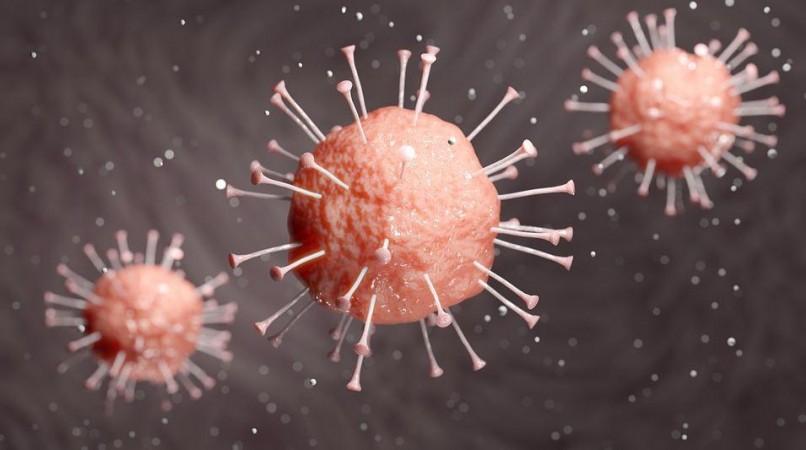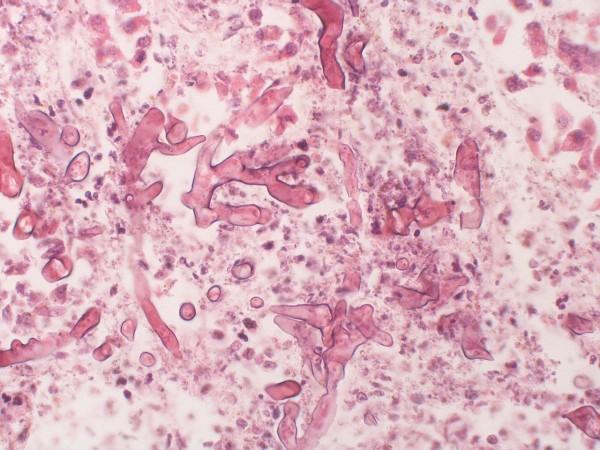As the number of 'Black fungus' infections reported among COVID-19 patients in the country rises, a novel complication of the infection in the lower intestine has been reported in two patients at Sir Ganga Ram Hospital in New Delhi. The patients aged 56 and 68 have been receiving treatment for over a week.
According to hospital authorities, the fungal infection—which is also known as mucormycosis—caused damage to the lower intestines of the two patients. "It is observed for the first time that the black fungus infected the lower intestine and even made a hole in it," said authorities at Sir Ganga Ram Hospital.
A Tragedy Followed By Another
Kumar(name changed), a 56-year-old resident of Delhi, had already lost three members of his family, including his wife, to COVID-19. He had tested positive along with his wife and had initially experienced mild symptoms of the disease. Shortly, after the funeral of his wife, Kumar began experiencing abdominal pain, reported IANS.

Hospital authorities stated that Kumar had considered his abdominal pain as stress-related discomfort or gastritis. He self-medicated himself for acidity. This delayed his seeking treatment for the pain by another three days.
"The CT scan revealed Kumar's small intestine (jejunum) had been perforated. His Covid disease also had worsened by now requiring ventilator support. The patient was admitted and taken up urgently for surgery," said Dr. Ushast Dhir, senior consultant, department of Surgical Gastroenterology and Liver Transplantation, who had examined Kumar, according to IANS
Dr. Dhir explained that his suspicions of the fungal disease causing the patient pain were raised due to the ulceration of the jejunum (middle section of the small intestine). He added that the patient immediately began receiving anti-fungal treatment following his diagnosis. A section of Kumar's intestine was also removed for biopsy.
Short-lived Relief

The second patient, Ijaz (name changed), 68, had recently recovered from COVID-19. However, he began experiencing mild abdominal pain. The sexagenarian had a prior history of diabetes and had been prescribed steroids as a part of his treatment for the novel coronavirus infection. No fever caused by mucormycosis was noted and his pain was mild.
Though his clinical examination revealed no signs of intestinal damage, he was referred for an urgent CT scan, by Dr. Piyush Ranjan, senior consultant of Medical Gastroenterology. "The biopsy confirmed our worst fear of mucormycosis of small intestine in both patients. Both these patients had Covid and had diabetes but only one of them had received steroids," said hospital authorities
A Novel Complication

Mucormycosis, which is caused by a group of fungi known as mucormycetes, mostly affects the lungs and the rhinocerebral system (sinus and brain). Cutaneous mucormycosis, which affects the skin, is another common form of the fungal infection. However, gastrointestinal mucormycosis is rare and can affect either the large intestine or the stomach.
"These patients in majority are immune-compromised. A majority of gastro-intestinal mucormycosis is seen in organ transplant recipients. The cases treated at Sir Ganga Ram Hospital were unique as they had covid and small intestine (instead of stomach or colon) was involved in both," said hospital authorities. They also emphasized the need for early CT scans in patients with a history of COVID-19 and treatment with steroids.
Earlier this week, the Union health ministry had called upon states and Union territories to declare mucormycosis a notifiable disease under the Epidemic Diseases Act, 1897. As of now, five states (Gujarat, Odisha, Rajasthan, Tamil Nadu, and Telangana) and one Union Territory (Chandigarh) have declared Mucormycosis an epidemic.








